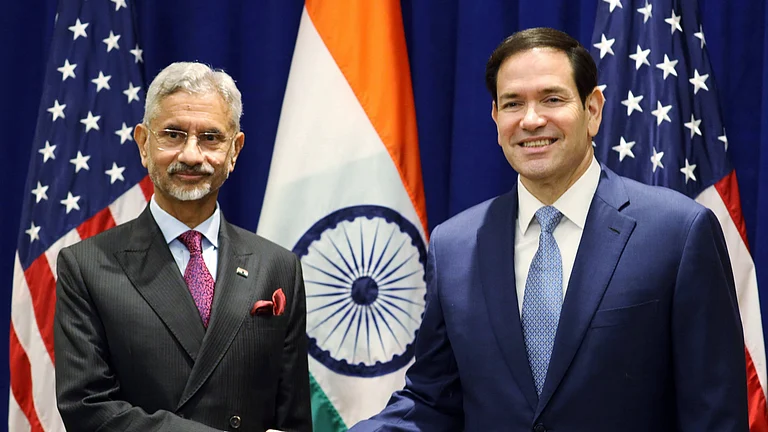External Affairs Minister S Jaishankar delivered a stern statement at the Shanghai Cooperation Organisation (SCO) summit in Islamabad, saying that if cross-border activities are "characterised by terrorism, extremism and separatism, they are hardly likely to encourage trade" or any sort of exchange.
Jaishankar summarised Article 1 of SCO's Charter and highlighted the objective of strengthening mutual trust, friendship and good neighbourliness. He said that the goal is to develop a multi-dimensional organisation and to be a positive force in terms of grown and conflict prevention.
"The Charter was equally clear what the key challenges were. And these were primarily three, that the SCO was committed to combatting: one, terrorism; two, separatism; and three, extremism," the EAM said.
"It requires honest conversation, trust, good neighborliness and reaffirming commitment to SCO Charter. SCO needs to be firm and uncompromising in countering the ‘three evils’," he added.
Jaishankar said that looking at today's situation, the Charter's goals are even more crucial. "If trust is lacking or cooperation inadequate or is friendship has fallen short," he said, there certainly are reasons for introspection.
He noted that the SCO summit is taking place at difficult time in world affairs, referring to the two major conflicts -- Israel-Hamas and Russia-Ukraine -- that are underway.
Delivering India's national statement, he went on to say that globalisation and rebalancing are such realities that cannot be denied.
"Cumulatively, they have created many new opportunities in terms of trade, investment, connectivity, energy flows and other forms of collaboration. There is no question that our region would benefit immensely if we take this forward," he added.
The EAM said that others would also be inspired from such efforts. However, he noted that "cooperation must be based on mutual respect and sovereign equality".
"It should recognize territorial integrity and sovereignty. It must be built on genuine partnerships, not unilateral agendas. It cannot progress if we cherry-pick global practices, especially of trade and transit," Jaishankar said.
Reiterating the importance of remaining firm on the Charter, Jaishankar said, "It is axiomatic that development and growth requires peace and stability. And as the Charter spelt out, this means being firm and uncompromising in countering the ‘three evils’. If activities across borders are characterized by terrorism, extremism and separatism, they are hardly likely to encourage trade, energy flows, connectivity and people-to-people exchanges in parallel."
Focusing on the "agenda" of the day, the EAM said that industrial cooperation can enhance competitiveness and expand labour markets, adding that MSME collaborations have postive impact on employment.
He pressed on collective endeavours to expand resources and encourage investment in businesses.
"Whether it is health, food or energy security, we are all clearly better off working together. Indeed, even culture, education and sports are promising areas. In effect, there is so much that we can do once we are truly determined to promote that synergy," Jaishankar said.
Listing India's initiatives, the EAM named the 'International Solar Alliance' which promotes solar energy, 'Coalition for Disaster Resilient Infrastructure' for climate events, 'Mission LiFE' for sustainable lifestyle, 'Global Biofuel Alliance' for energy transition, and 'International Big Cat Alliance' for protection of bio-diversity.
He said that advocacy for 'reformed multilateralism' strengthens each day because as the world order changes, global institutions do not need to keep pace.
Jaishankar pressed on the need for reform in the United Nations Security Council -- in both the permanent and non-permanent catergories. He noted that India had in July recognised that "credibility and effectiveness of the UN is dependent on ensuring the representation of developing countries through comprehensive reform".
He also highlighted that leaders have agreed to UNSC's reform in the "Pact for the Future", which was adopted during the recent UN General Assembly session. "The SCO must be in the lead of advocating such change, not hold back on a matter of such importance," Jaishankar added.
Jaishankar said that it is important that SCO members renew their resolve to attain the objectives of the organisation, which means "recognising the current constraints on our cooperation and focusing on the pathway forward".
"After all, the SCO represents the forces of change on whom much of the world puts such great store. Let us live up to that responsibility," the External Affairs Minister said.





















.png?w=200&auto=format%2Ccompress&fit=max)




